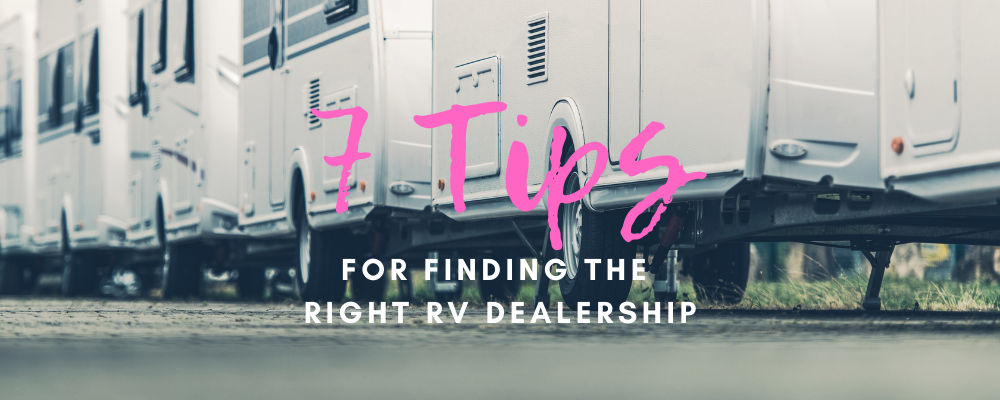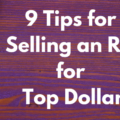Finding the right RV dealership may not be as straightforward as showing up at the one closest to where you live. Certainly, the closest may win for convenience, but not all dealerships are the same. Following are 7 tips for finding the right RV dealership for your purchase.
1. Dealership Brands
Find out what brands a dealership carries in their new inventory. Like car dealerships, RV dealerships specialize in specific brands, so they may not carry what you are looking for. Not sure which brand is right for you? We can help with that too. Check our article on RV Brands – How do they stack up.
2. Must-Have List
Have a clear understanding of what is on your must-have list. This will help your salesperson start narrowing down the options and floorplans for viewing.
Related Article: Top 4 Questions to Answer When Considering an RV Purchase
3. Dealership Fees
Ask upfront if the dealership has any fees they add on to the purchase price. The normal charges include sales tax, tag, and title. Additional fees a dealership may charge include dealer prep and delivery fee, manufacturers’ destination charge, and a document handling fee. These additional charges are ALL added profits for the dealership.
Typically, if the sales price of the RV is much lower than what you see online or at other dealerships, that is usually a tip-off. Remember, at the end of the day, all things are negotiable when purchasing an RV. Be prepared to ask for a deeper discount to offset these additional charges. Depending on how sales tax is charged, it may be advantageous to ask for a lower sales price on the RV and as the additional fees may not be taxable. The bottom line, ask your dealership about fees and the best way to structure the deal to minimize taxes.
4. Used Inventory
Shopping for used inventory can be a huge cost-savings. In some cases, a used unit may allow you to move up to a higher class or model. If you are in the market for a used RV, call the dealership or check out their website to see what is currently available. Keep in mind that this inventory changes regularly. Moreover, it’s always a good idea to establish a relationship with someone at the dealership who can notify you as soon as something comes in on trade.
5. Incentives
Many dealerships will offer incentives or value-added benefits that can be an attractive feature. An example is Lazy Days (several locations across the country) offers free camping for a year with every purchase. Additionally, they offer the Crown Club with luxury RV purchases. Membership includes complimentary access to the clubhouse and amenities offered within and complimentary camping at the RV park on the dealership’s property. Lazy Days also offers a Fly & Drive program where they will pay for your flights to the dealership so that you can take delivery of your unit and then drive home. Ask what your dealership offers.
6. Maintenance
Not all dealerships offer a service center for regular maintenance or warranty work. Instead, ask what the dealership offers on-site. If they are not equipped to handle both maintenance and warranty work, find out where the closest service center is located. This should not be a deal-breaker when looking for an RV dealership. Some dealerships specialize in sales but not service. However, it’s important to keep in mind if you need to budget additional costs such as fuel, camping, hotel, etc., to get to and from the nearest full-service maintenance and warranty service center.
7. Read Reviews
What have previous customers said about their experience purchasing from the same dealership? The fastest and easiest place to check is Google, as they collect reviews for all businesses. Dealer Rater is another site that offers reviews on car and RV dealerships. Be sure to pay it forward and leave a review of your dealership experience to help other consumers.
Final Thoughts
Finding the right dealership and, equally important, the right salesperson can be an invaluable experience. But, of course, it can also go horribly wrong as well. Do your research, and ask lots of questions. Join a few groups on Facebook, such as RV Owners groups, RV Tips, etc. Most importantly, ask experienced RV owners for their recommendations.
Information collection takes time. Purchasing an RV is a huge investment not to be entered into on a whim. If the dealership or salesperson doesn’t feel like a good fit, it probably isn’t. Time to move on to the next dealership or salesperson. In the same vein, make sure you visit several dealerships before making a purchase decision. Above all, listen to that little voice inside, aka the gut feeling.
Good luck and happy camping!
Related Articles:



